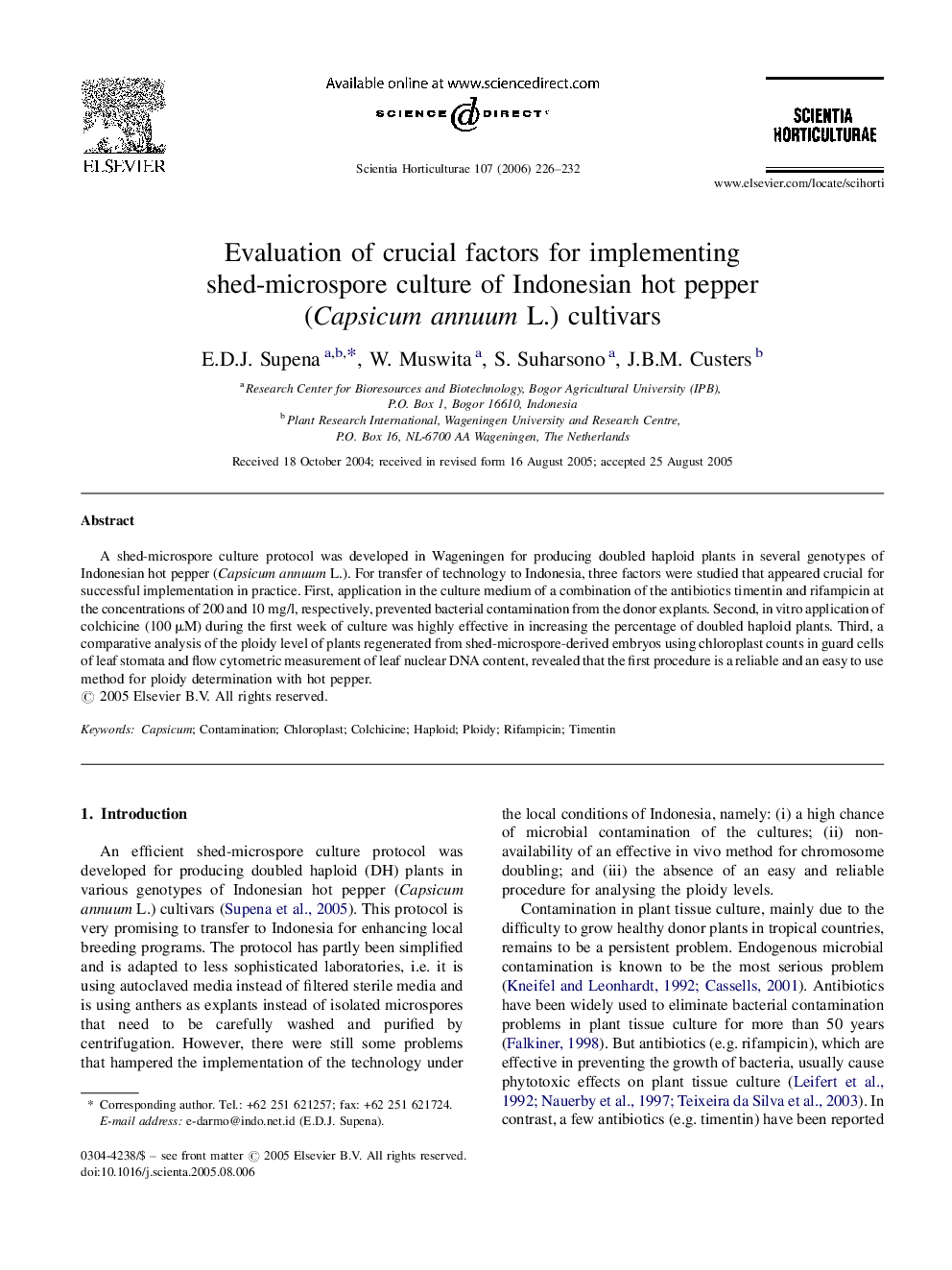| Article ID | Journal | Published Year | Pages | File Type |
|---|---|---|---|---|
| 4570076 | Scientia Horticulturae | 2006 | 7 Pages |
A shed-microspore culture protocol was developed in Wageningen for producing doubled haploid plants in several genotypes of Indonesian hot pepper (Capsicum annuum L.). For transfer of technology to Indonesia, three factors were studied that appeared crucial for successful implementation in practice. First, application in the culture medium of a combination of the antibiotics timentin and rifampicin at the concentrations of 200 and 10 mg/l, respectively, prevented bacterial contamination from the donor explants. Second, in vitro application of colchicine (100 μM) during the first week of culture was highly effective in increasing the percentage of doubled haploid plants. Third, a comparative analysis of the ploidy level of plants regenerated from shed-microspore-derived embryos using chloroplast counts in guard cells of leaf stomata and flow cytometric measurement of leaf nuclear DNA content, revealed that the first procedure is a reliable and an easy to use method for ploidy determination with hot pepper.
